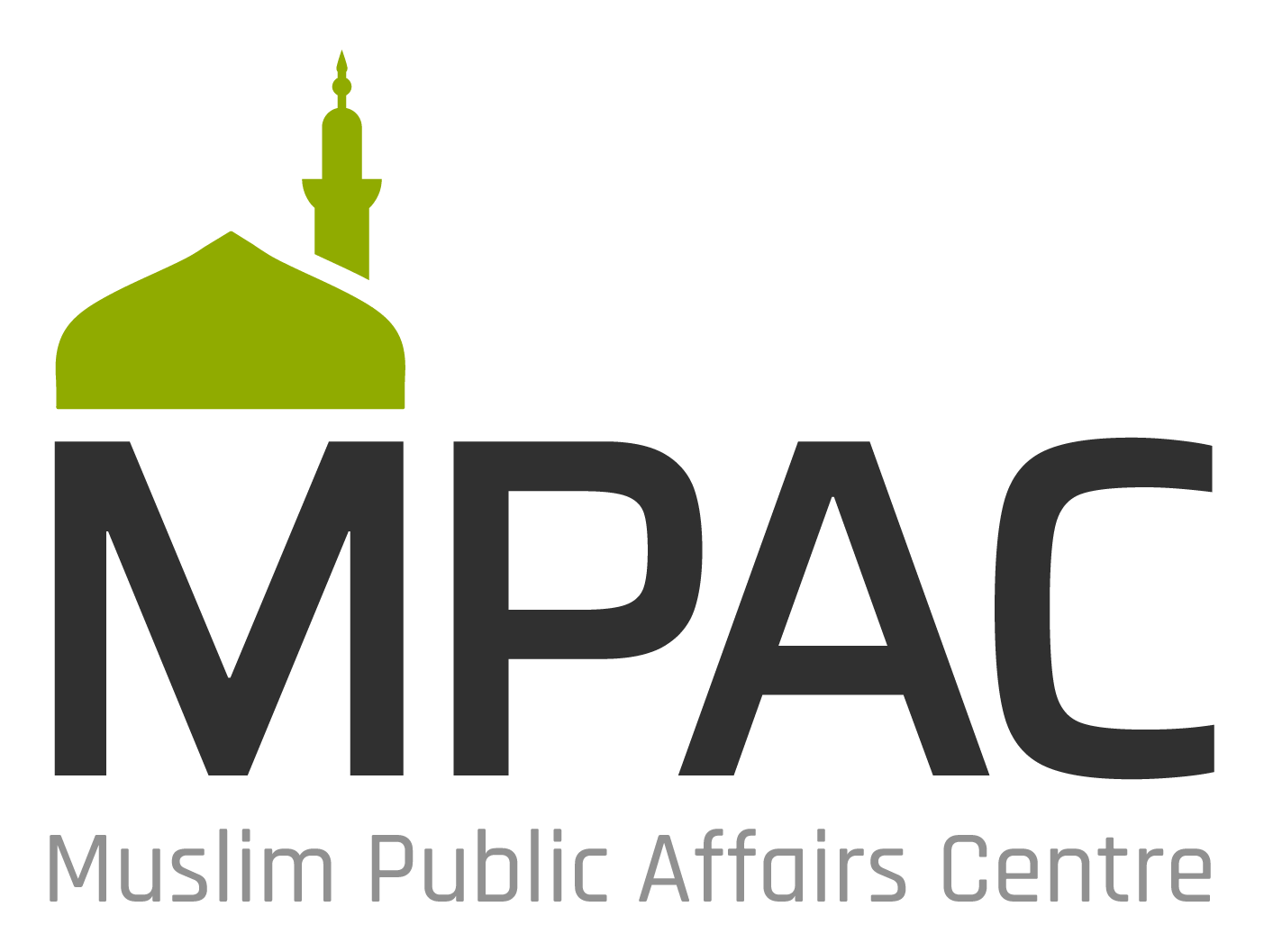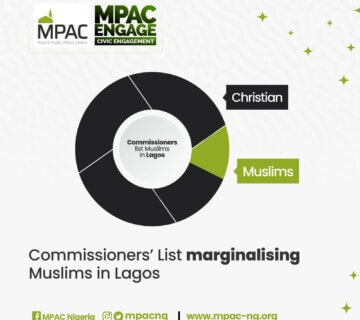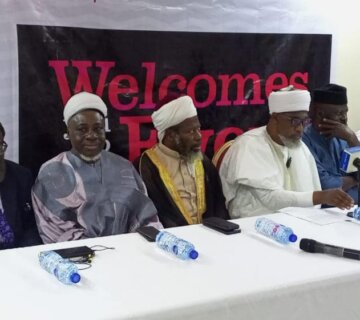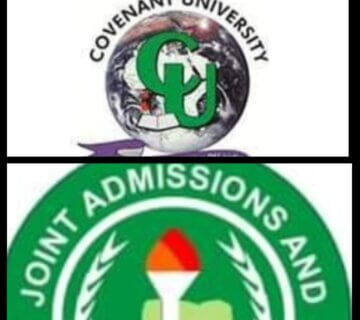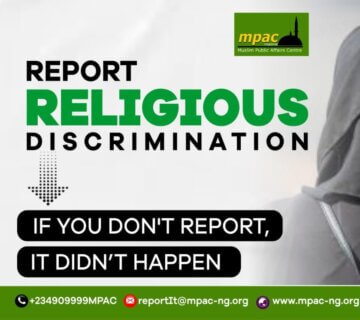In the name of Allah, the Beneficent, the Merciful
Press Release: FOR IMMEDIATE RELEASE
NSCIA on COVID-19 and Muslims in Nigeria
Thursday, 19 March 2020 | Rajab 24, 1441 AH
Abuja, Nigeria
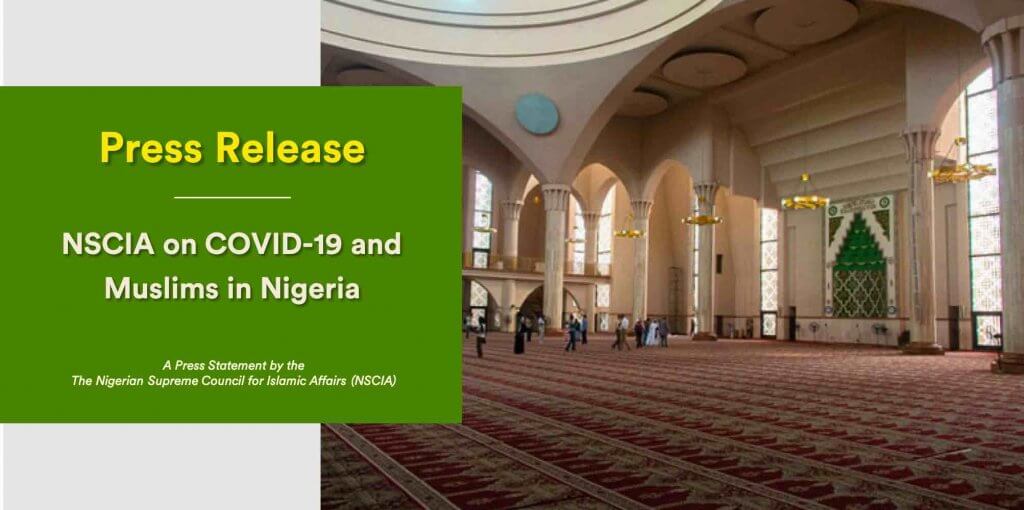
Bismillah al-Rahman al-Raheem
The Nigerian Supreme Council for Islamic Affairs (NSCIA) under the leadership of its President-General, His Eminence, the Sultan of Sokoto, Alhaji Muhammad Saad Abubakar, CFR,mni., has keenly followed the developments around the COVID-19 pandemic globally, and the situation in Nigeria in particular. It is pertinent to note that this strain of the coronavirus is the most virulent that the world has had to deal with in recent times; and it is important not to trivialize, oversimplify or politicise the issue.
Allah said in the Glorious Qur’an: “God does not intend to inflict hardship on you” (Qur’an 5:6); “Allah desires ease for you, and He does not desire hardship for you” (Qur’an 2:185); “And guard against the mischief that will not only bring punishment to the wrong-doers among you” (Qur’an 8:25); And regarding our duty to take responsible action while at the same time trusting in Allah, the Prophet (SAW) once said: “Tie her (your camel) and then trust in Allah” (Sunan at-Tirmidhi, no.2517).
Similarly, it is well-known that one of the higher objectives of Islamic Law (maqasid al-Shari’ah) is the “preservation of life” (hifz al-nafs) as well as the promotion of the common good and public benefit (Jalb al-Masalih) and the prevention of harm or evil (dar’ al-mafasid); and in line with Islamic legal maxims (qawa’id al-shariyyah) – such as “Harm must be eliminated” (Al-dararu yuzal); “prevention of evil takes priority over the attraction of benefit” (Dar’ al-mafasid awla min jalb al-masalih), and “harm is eliminated to the extent that is possible” (Al-dararu yudfa‘u bi-qadr al-imkaan) – it becomes obligatory for all segments of the country, including religious and traditional bodies, to cooperate with the government and appropriate agencies to combat this disease, prevent further transmission, and control the virus with Allah’s help.
Hence, the NSCIA wishes to advise all Muslim organizations, Mosque committees, Imams, scholars, Da’awah activists and the general Muslim Ummah and indeed, the entire citizens of our dear Country as follows:
1. It is strongly advised that all segments of the society, including religious bodies adhere strictly to all public health directives and regulations provided by the competent authorized agencies such as Nigeria Centre for Disease Control (NCDC) – available on www.ncdc.gov.ng – and the Federal and State Ministries of Health regarding COVID-19. This is in line with the Qura’nic injunction, “O You who believe, obey Allah and the Messenger, and those in authority among you” (Qur’an 4:59).
2. It is important for everyone to take all necessary precautions to prevent the spread of the disease. Such precautions include frequent handwashing with soap, limiting physical contact by giving verbal salutations instead of shaking hands and hugging, observing proper hygiene when coughing or sneezing, etc. Imams, preachers, and organizations should sensitize their members about these precautionary steps. It should be noted that these measures are all almost exactly similar to the ones that were taken when such kind of pandemic took place during the reign of Caliph Umar (r.a.) in the 18th year after Hijra which caused the death of several companions of the Prophet (s.a.w). That was ta’uun amwaas (the Amwaas epidemic).
3. It is important for all parties to cooperate with appropriate agencies working to limit the spread of the disease and to eradicate it. The command of Allah is for the faithful to “cooperate in doing goodness and piety, and not help one another in sin and transgression” (Qur’an 5:2). Thus, there should be no circulation of rumours, false and misleading information; and only official statements from appropriate agencies should be relied upon.
4. In the event of confirmed emergence of the infection in several figures, regarding the congregational prayers, in such affected places, including the Friday prayers, funeral prayers, tarawih prayers and Eid prayers; people with compromised immunity such as the elderly, children, those with underlying health conditions amongst others should observe their prayers in their homes or wherever they are, and pray Zuhr in place of the Friday (Jum’ah) prayers.
5. Regarding the Hajj and Umrah, it is obligatory to adhere to all directives issued by the government of the Kingdom of Saudi Arabia, which are geared towards ensuring the well-being and safety of all; and are made in consultation with relevant knowledgeable stakeholders for common good.
6. We urge mosques and Islamic centres to strongly discourage members from attending any mosque activities even if they are only experiencing mild symptoms. The symptoms include respiratory problems, fever, cough, shortness of breath and breathing difficulties. It is obligatory (wajib) for you to keep away and self-isolate if you have been diagnosed with Coronavirus in order to prevent the virus from spreading. Preventing harm, especially to the lives of others, takes precedence over the benefits of attending mosque activities. Self-isolation, quarantine and social distancing are all integral parts of prevention of harm (dar’ul mafasid) in these critical times.
7. It is very likely that governments and appropriate agencies would start putting social distancing measures in place very soon, depending on the severity of the situation. This could mean that major public gatherings are closed. This will inevitably have a significant impact on the Muslim community, specifically our mosques, schools, study groups, madrasas and Islamic centres, especially with Ramadan just a few weeks away, and we fervently pray to Allah in His Glorious Names and Attributes not to allow the pandemic to last that long. In the event of such restrictions, we emphatically urge all Muslims to comply fully with such measures that are in the public interest of all.
8. Should it become necessary to suspend congregational prayers in the mosques, the Prophetic example in this regard is for the caller to prayer (Mu’adhdhin) to announce during the Call to Prayer (adhan): “Pray in your dwellings! Pray in your dwellings!” This measure again can be based on analogy that can be drawn from the Hadith in which the Prophet (s.a.w.) prohibits those who eat onion or garlic from attending congregation to avoid harming others with the odour of their mouths. It is obviously more necessary to prevent infection that may lead to death than mere harm with smell.
9. Business owners and traders should be urged to fear Allah and avoid hoarding essential products, creating artificial scarcity or unnecessary inflation of prices. Similarly, the populace should be considerate in their purchases and avoid reckless and extravagant purchases that prevent others from accessing essential commodities. The Prophet Muhammad (SAW) said, “The merciful will be shown mercy by the Most Merciful…” (Sunan al-Tirmidhi, no.1924)
Indeed, these are trying times for the Ummah, the country, and the world in general; hence we urge everyone to return to Allah in repentance and supplication, asking Him to lift this illness from all people, remove all tribulations from our lands, and grant us all safety and security.
Signed
Professor Salisu Shehu
Deputy Secretary General,
The Nigerian Supreme Council for Islamic Affairs (NSCIA)
—————–
As you’re here…
MPAC has one humble request from you…
Thousands of Nigerian Muslims rely on the services we provide at MPAC and thousands more from around the world visit our website for news every day. Due to the significant challenges we face in dealing with Muslim-related issues in a heightened Islamophobic environment, MPAC is constantly under financial strain to meet our financial needs.
To maintain editorial and financial independence, with no sectarian or political allegiance to any particular group or movement, MPAC relies only on donations from individuals like you.
It is easy to understand the importance of organisations that do the sort of work we do at MPAC in today’s climate. Please support us financially and please support us for as little as N1000 a month. It only takes a minute to make a one-off donation or to set up a standing order with your bank. Jazakallah khayran.
Our beloved Prophet Muhammad (peace be upon him) said: “The best deeds are those done regularly, even if they are small.” [Ibn Mājah]
